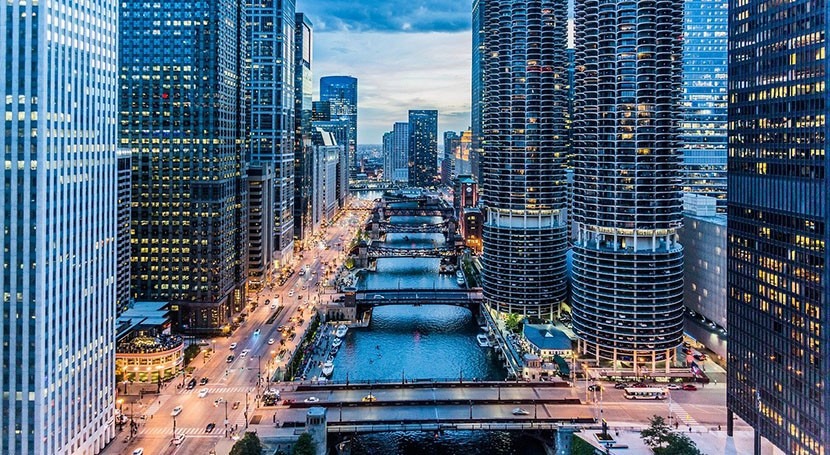The depletion of water resources (e.g., rivers and lakes) is more rapid and evident in proximity of urban areas and, away from cities, it gradually decreases. A research group from the University of Bologna analyzed 30 years worth of satellite imagery of areas of the United States and developed a model that is able to predict the distribution of water loss in connection with urban areas proximity. Their study was published in the journal AGU Advances.
"By 2050, 70 percent of the world's population will be leaving in cities. This phenomenon will yield consequences over the quality and quantity of surface waters, especially rivers," explains Irene Palazzoli, first author of this study and Ph.D. student at the Department of Civil, Chemical, Environmental and Materials Engineering of the University of Bologna. "Our results can therefore prove fundamental to define strategies of water management that will contribute to mitigating the effects of urbanization on ecosystems."
Extracting water directly from rivers and springs, exploiting groundwater with the resulting higher risk of infiltration, field drainage to foster agricultural development, increasing evaporation rates because of the warmer micro climate of urban areas. These are all direct consequences of urbanization and represent a threat to the conservation of surface waters. The projected growth of urban population alongside temperatures rising do not depict an encouraging scenario.

Surface water loss locations and urban areas across river basins and water resource regions of the CONUS. Locations that experienced surface water loss are colored in blue. The extent of urban areas is shown in orange. The boundaries of the 204 HUC-4s river basins are depicted in white, while the 18 water resource regions are numbered and highlighted with a bold gray line. The dark blue dashed box represents a zoom in over the area around the city of Saint Louis and the Mississippi River. Credit: DOI: 10.1029/2021AV000519
To tackle these issues, the researchers asked themselves the following questions: where and how does urbanization cause surface water withdrawals? Is this phenomenon linked to the distance of rivers and lakes from cities?
"The impact of urbanization on the environment is a well-known issue. However, the consequences of urban sprawling on water resources, especially with reference to the interaction between urban areas and surface water loss, are under-researched topics," adds Palazzoli. "Thanks to our data, we defined a mathematical model of probabilistic distance-decay that is able to measure exactly that: the spatial influence of human settlements on surface water depletion."
Researchers used satellite imagery of the United States covering a period that spans from 1984 to 2018. Their model shows how the depletion of surface water resources rises exponentially the closer one gets to human settlements. Climate also plays a role. In areas with a temperate climate, the depletion of surface water resources is higher around the cities, while in drier regions the impact of urban areas on surface waters affects a significantly larger area.
"Investigating the interaction between urban areas and surface water loss is fundamental to reach a balance between urban development and policies of water management in order to protect ecosystems and safeguard water resources," concludes Palazzoli. "In these regards, our probabilistic model allows to obtain useful information and can be applied everywhere in the world by similar studies."
The study was published in the journal AGU Advances and titled "Influence of Urban Areas on Surface Water Loss in the Contiguous United States."




